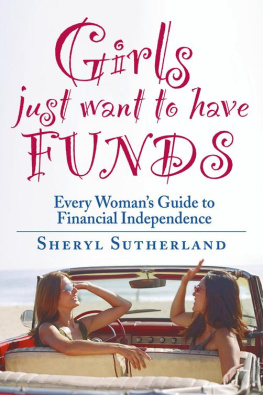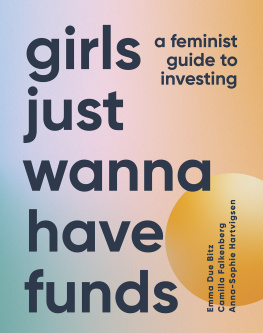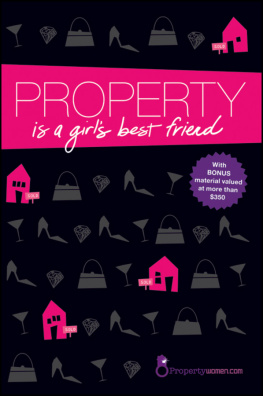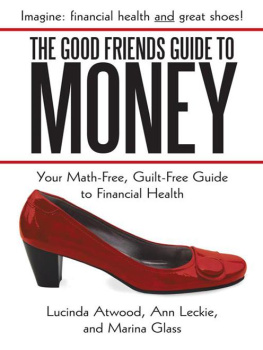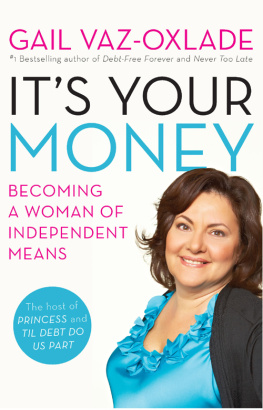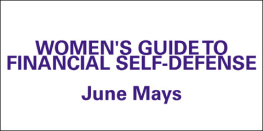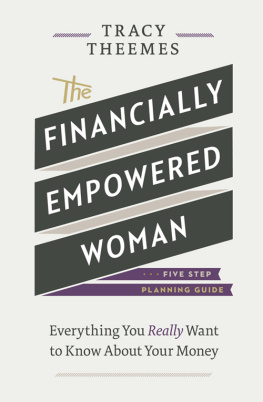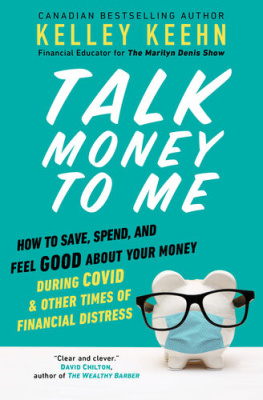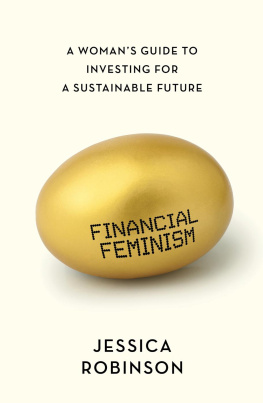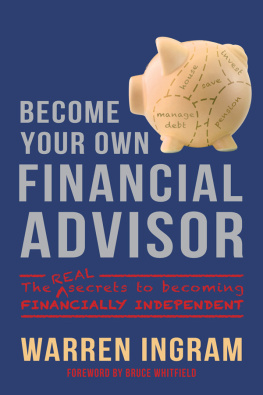M ost 21st century women want or need financial independence. According to Sheryl Sutherland, women have different life patterns to men and these greatly affect our ability to save or invest.
With a relaxed style pitched at every woman, Sheryl helps the reader identify goals and personal values. Using case studies, exercises, quizzes and questions, she encourages readers to think about their own financial situation, and consider savings and investments.
Sutherland covers partnerships and money, tips for compromise and commandments for every woman. There are chapter on lifting the debt burden, legal issues, the psychology of money, the Art of Investment and much, much more.
Sheryl Sutherland has been a financial advisor for New Zealand women for over 20 years. In Girls Just Want to have Fund$, she helps the reader create a financial plan for life.
Its fun. Its revealing. It could change your life.
Today we have a world fit for women. In general terms we are healthy and literate. We have political and legal freedom and the right to control our own bodies. The last bastion we have to crack is that of economic independence. There are two ways we can take up the challenge: use our education to gain political and economic clout, and on an individual basis create our own wealth through investing and personal financial planning.
Women around the Western world are gradually acquiring economic strength. As women continue to pour into the paid workforce, they will apply their natural aptitudes in many sectors of society and dramatically influence twenty-first century business enterprises, sexual mores, and family life. In some important parts of the economy we will even predominate. Why? Because current trends in business, communications, education, law, medicine, government and even the non-profit sector, such as the civil service, suggest that the world needs the female mind.
Much of the international economy is shifting from one based on natural resources and physical labour, to one based on goods and services. This opens the international economy to women. Moreover, the rapid growth of international trade and free markets, the expansion of investments across national borders and the devices of the computer age, are enabling the flow of knowledge and money into womens grasp.
Our biggest complaint is lack of time, but what we lose in time we are gaining in spending power. Not just pin money either, as single mothers earnings are essential and in dual income families womens wages supply the difference between just getting by and living comfortably. Ones earning ability is also a great insurance policy in the event of divorce, or widowhood.
Women entrepreneurs in New Zealand are starting new companies at twice the rate of men and stay in business longer than men, with a much lower failure rate.
Today there are few spheres of life where women are not involved, including government. In New Zealand, we are led by our second woman prime minister. On the world scene, 23 states had female heads during the 1990s and fewer than a dozen governments have no women representatives. There is a growing trend towards appointing women to senior positions within government and political party structures.
For at least the next several decades we can anticipate that the economic forces bringing women out of domesticity will strengthen. In industrial societies a wave of educated, confident, baby boomer women have time, energy and money. In their footsteps follow an even more powerful generation of women, who will surpass their mothers in their pursuit of education and careers. In other societies, millions more women are expected to break with the past, gain paid employment and accumulate enough resources to support their children and, frequently, their parents.
It may seem strange to be concerned for the financial future of women after several decades in which women have increased their earning power and financial independence, but it is surprising how many women rely on their partners. This can be a recipe for financial and emotional disaster.
This book has been written to give you what you need to know to make successful investment decisions, while juggling a multitude of roles in a busy life: you know, the life that we sagely say is all a matter of balance, as we pick our elegant way across the tightrope, holding the groceries under one arm and the umbrella in the other.
Happy investing.
Sheryl Sutherland,
June, 2005
Womens fear of money, conservative investors, factors that hinder womens investing exclusion, pay equity, care-giving, financial enabling, maths anxiety, cultural imprinting and stereotyping.
I t is clear womens roles are changing dramatically; more women are in the paid workforce and in executive positions than ever before. Womens earnings are increasing, more businesses are being headed by women and more university graduates are women. We have more access to money, which brings with it more choice, more opportunity, more responsibility and more uncertainty.
Socially, the divorce rate is rising, with more women heading single parent families or taking on the role of key breadwinner. Anecdotal evidence supports the quiet emergence of the male household god (the female version being the domestic goddess): the father who stays at home, runs the household and looks after the children. Fortune magazine recently devoted an article to this phenomenon, outlining the trials and rewards experienced by these male rule-breakers. Also more women are deciding not to marry; many are balancing family and career, and perhaps looking after aging parents. Women are living longer.
Against this backdrop of conflict and change we must take the opportunity to create our own financial choices and build personal security through planning. We are working against a constantly changing political environment, which we have influenced , and a changing economic environment over which we currently have little power.
However, even if we are otherwise successful and self-reliant, many women fear money and often fear people who work with money. A recent interview with Oprah a woman who has it together and whose mission is to help the world get it together gave a portrait of a woman who was uneasy with money. She related that for quite some time she had had millions of dollars stashed in cash her bag lady syndrome.
There are several key factors that impact on our attitudes to money and investing:
Women are more intimidated by finances and by making financial decisions than men. A recent survey showed that 33 per cent of women investors avoided making a decision through fear of making a mistake, versus 22 per cent of men. As a consequence we tend to defer financial decisions and money management to the men in our lives. In my business, I frequently come across women who do not know where the family money is and who feel unable to discuss this issue with their partners, and because of this situation, on separation or death of their partner, are quite lost.
After divorce, women come off second best financially. A womans income drops 24 per cent on average; a mans drops 6 per cent. Women are usually more focussed on the short-term needs of children schooling and home rather than the longer-term goal of ensuring the settlement is equitable. Dealing with the familys emotional issues as well as a drop in income has a debilitating effect.
Golly, I could do with 100,000, couldnt you? I had such an awful afternoon with my bank manager scolding me about my overdraft.

